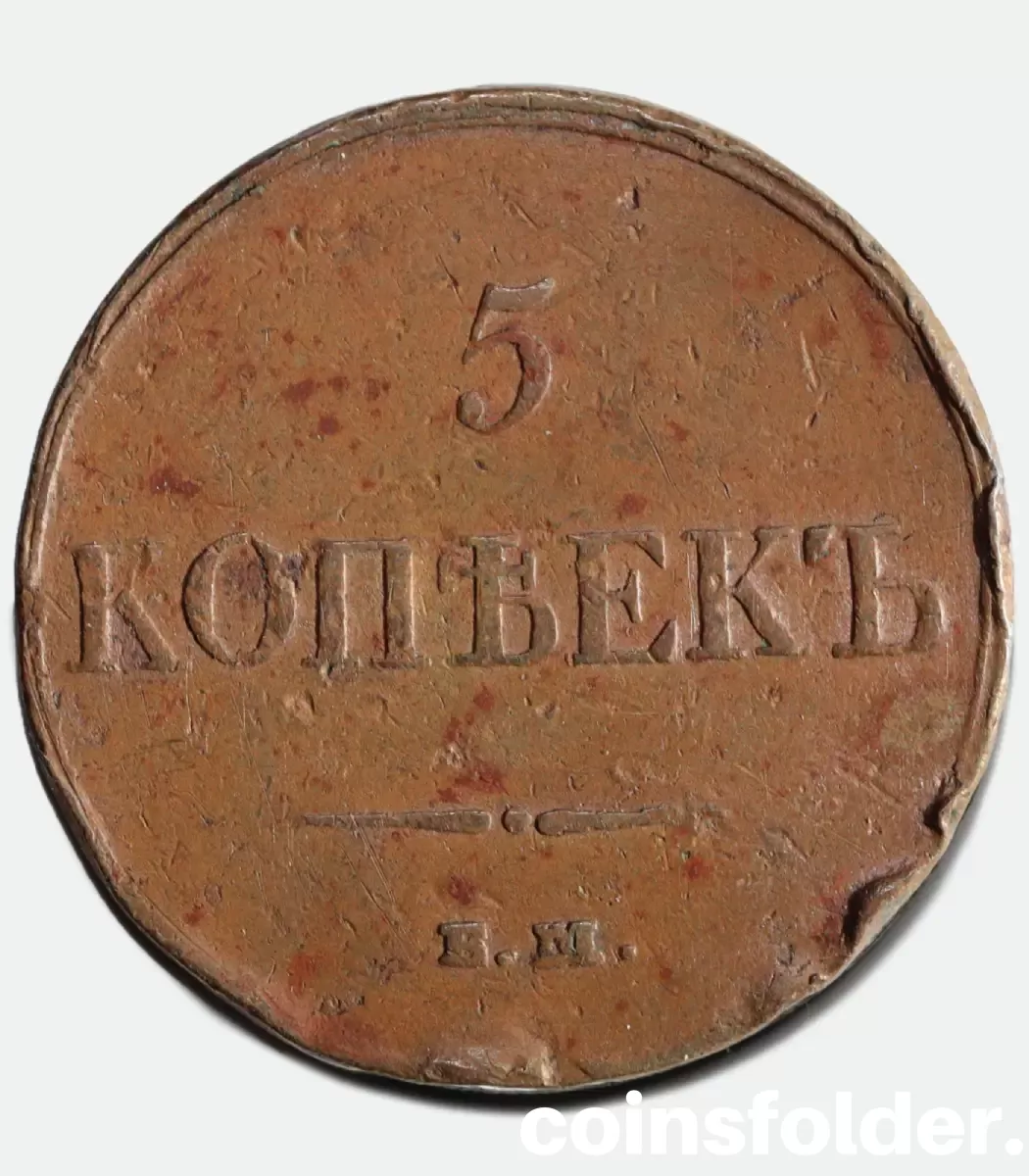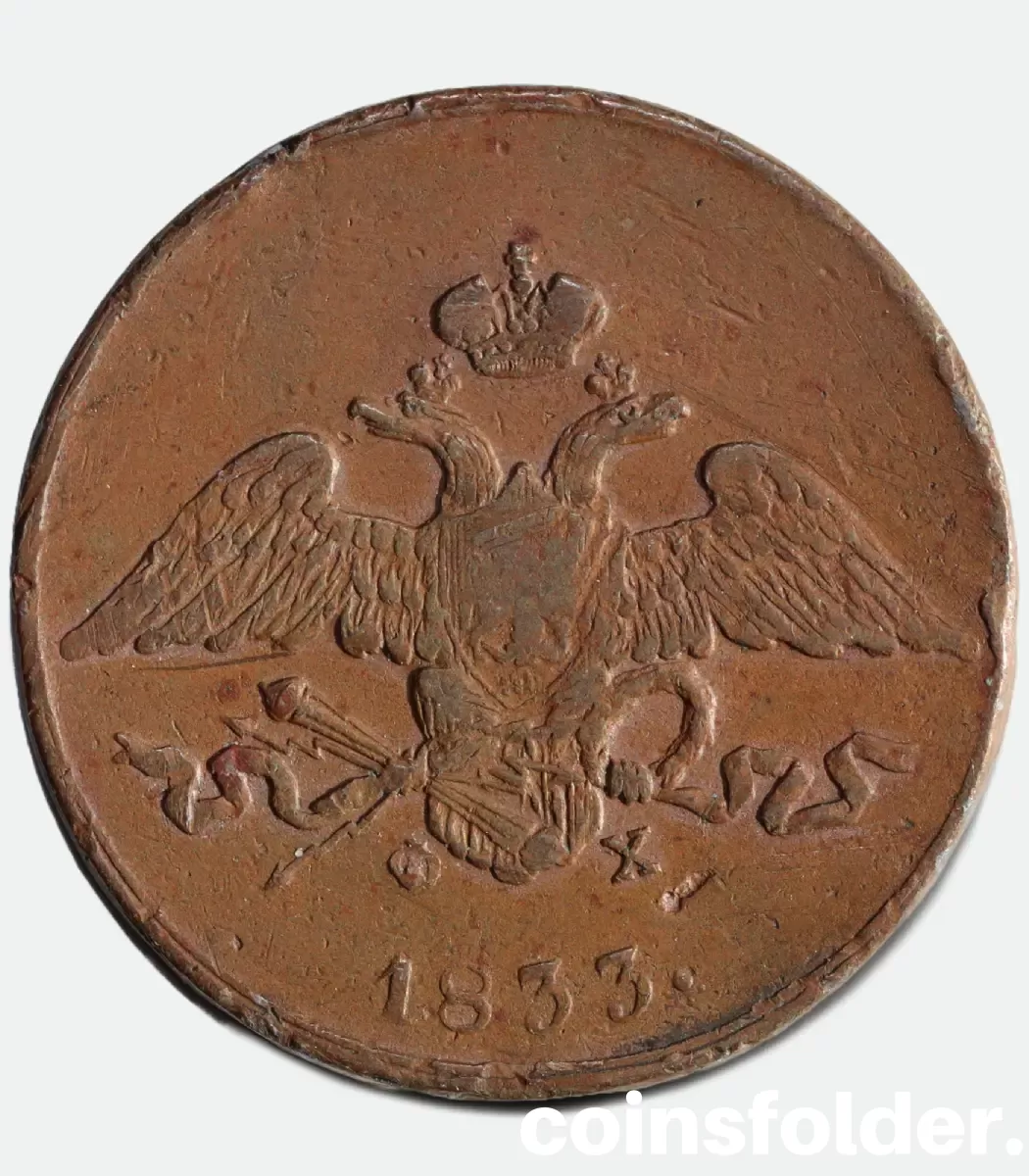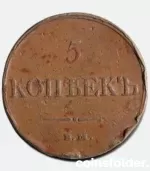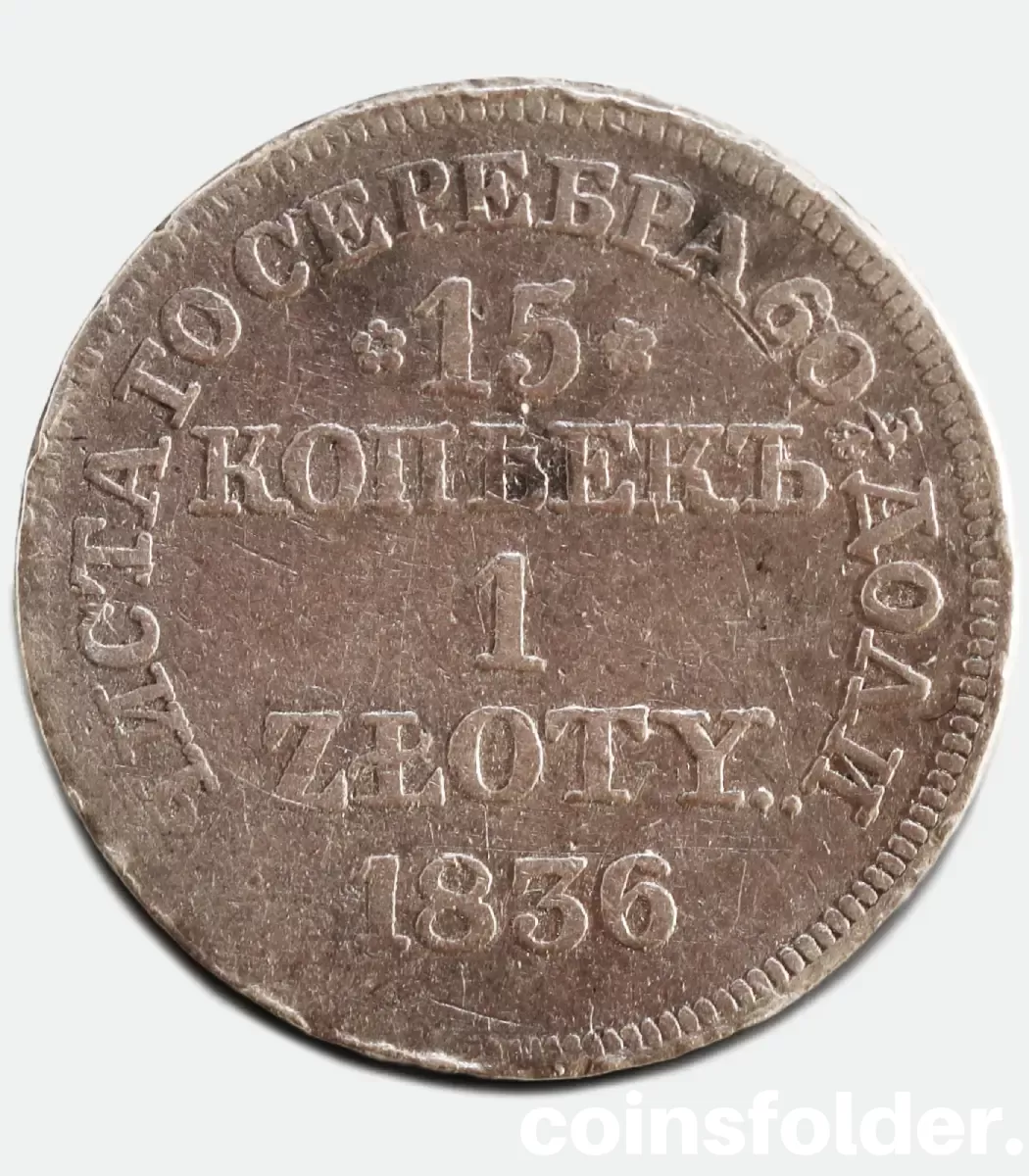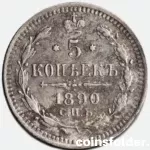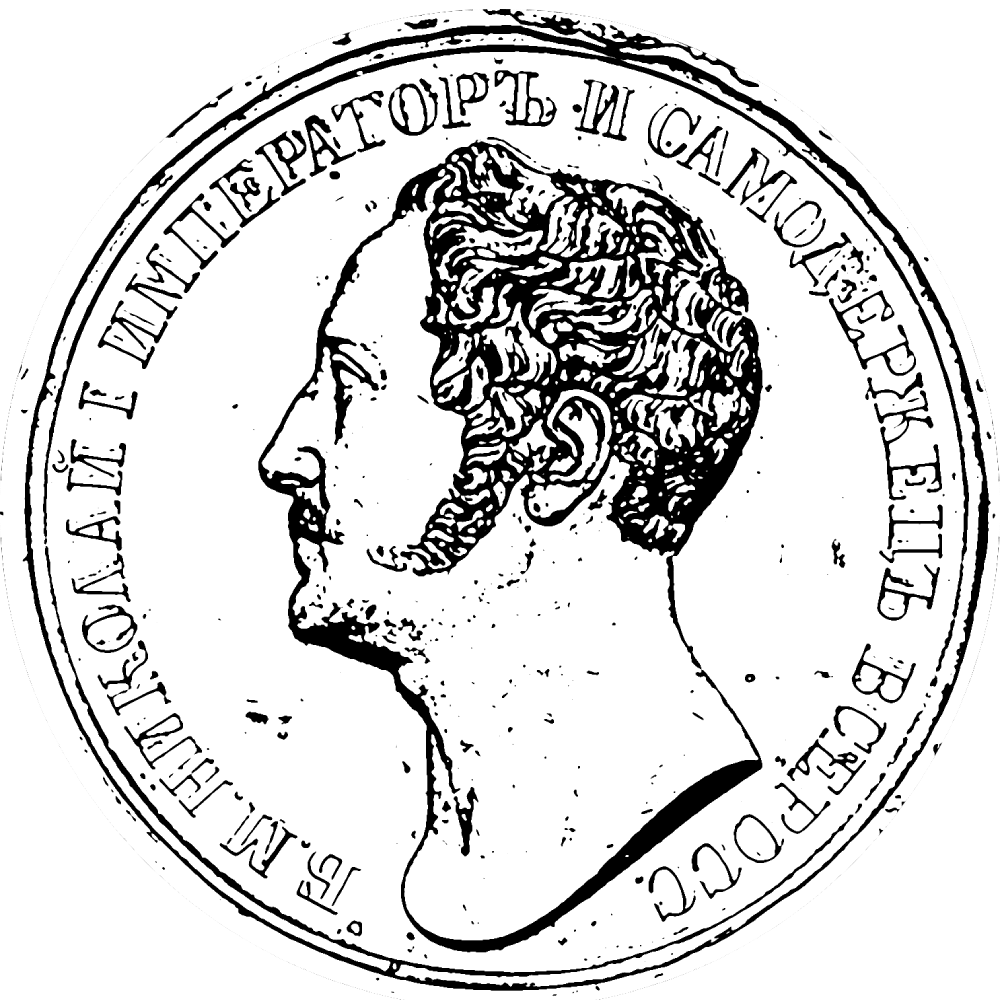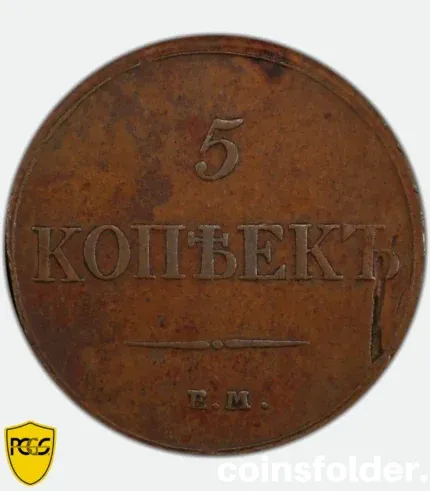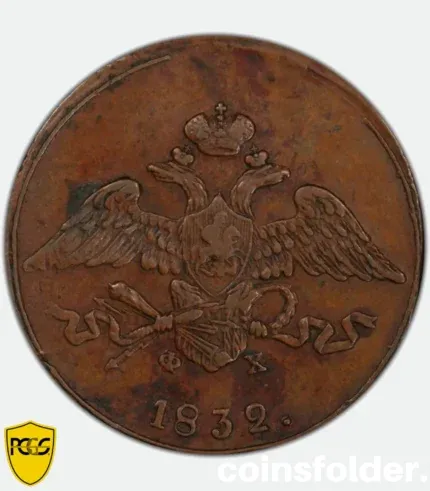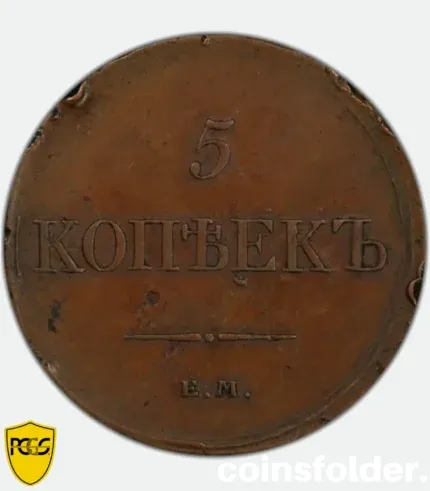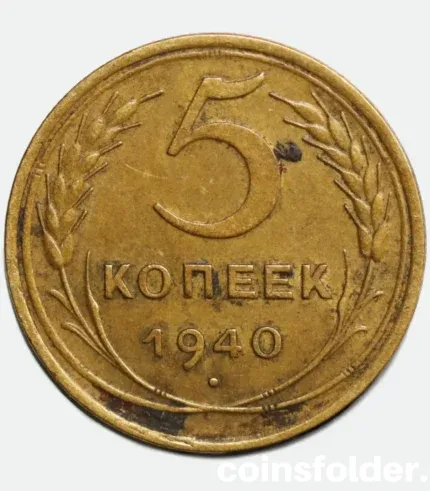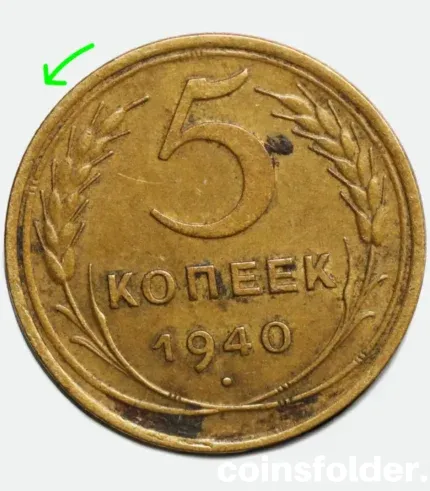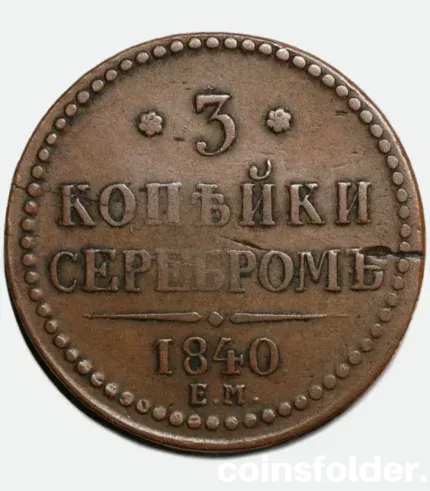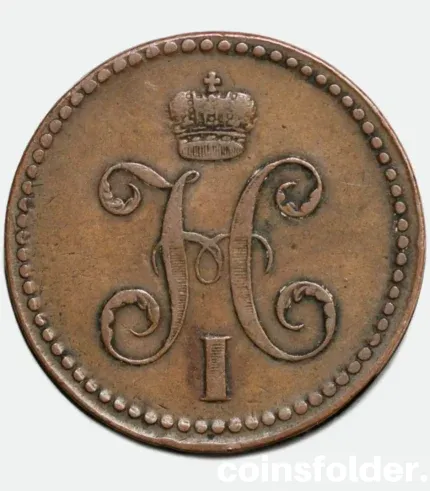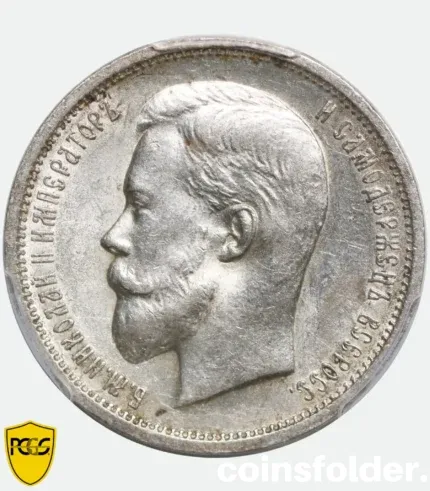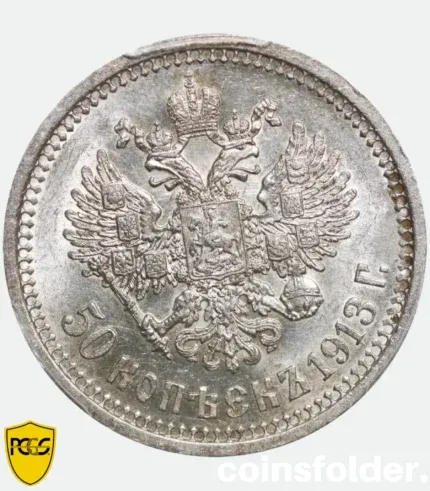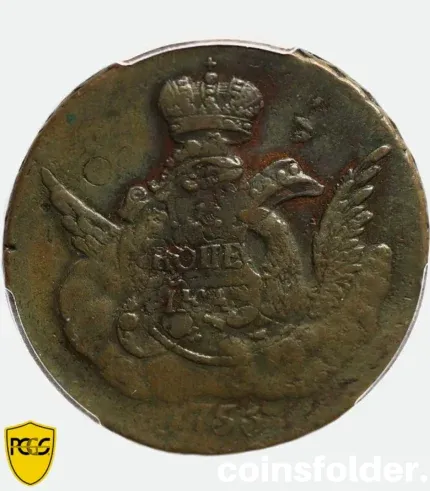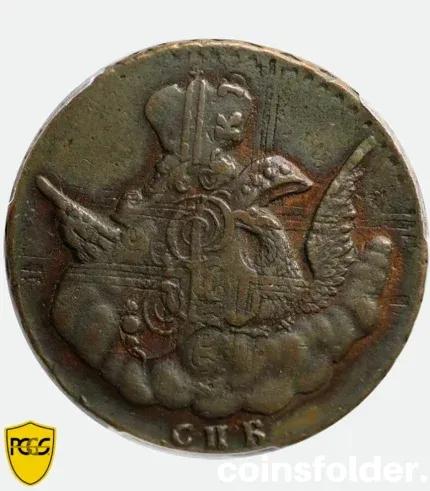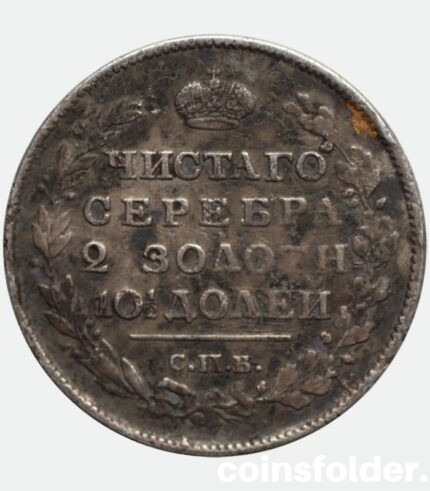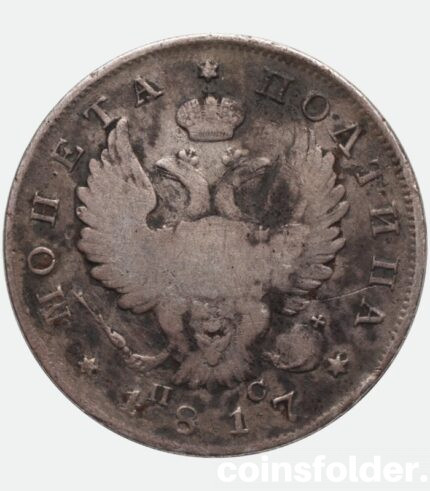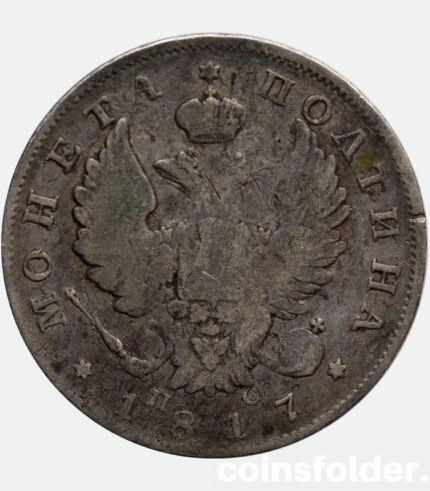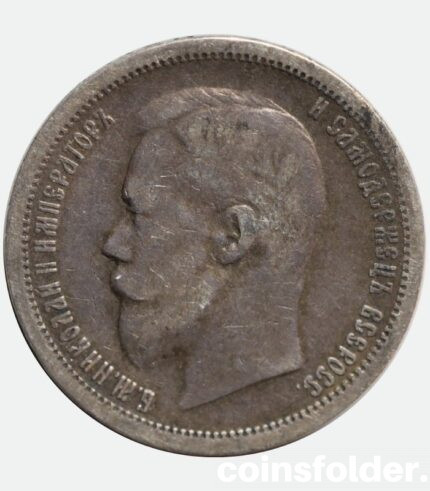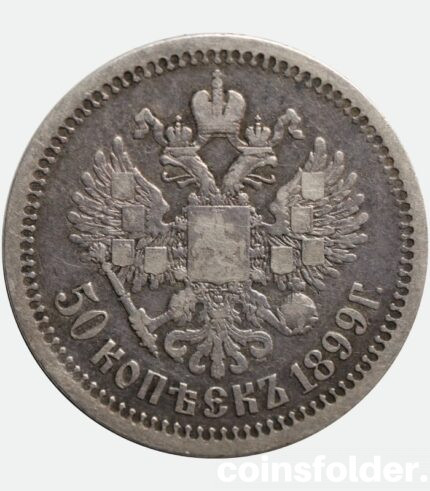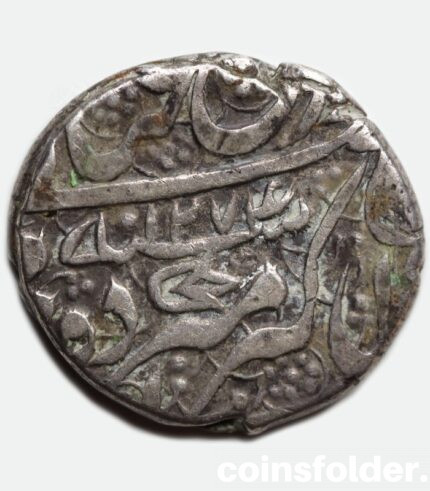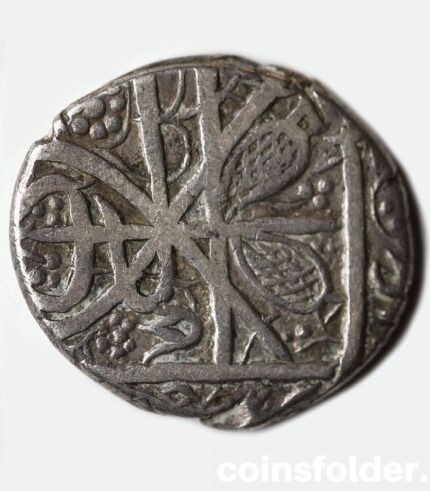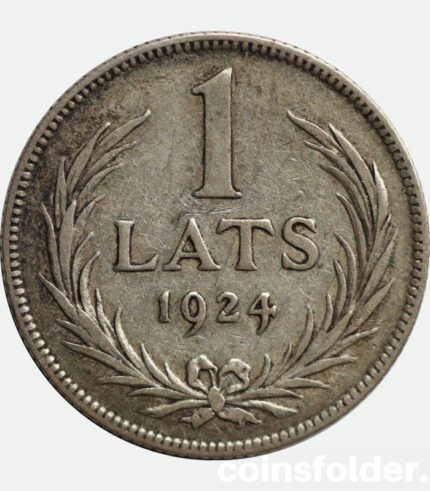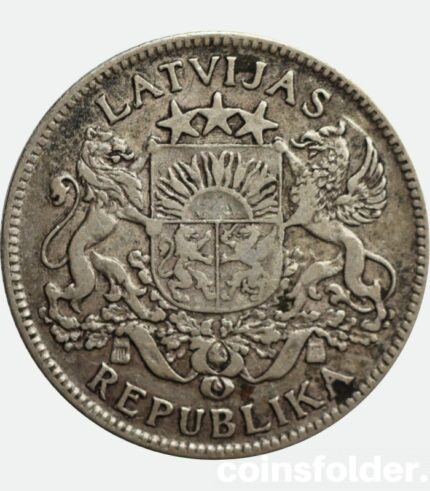1833 ЕМ-ФХ 5 kopecks F
11,99 €
-
EUR
-
USD
-
AUD
-
SEK
-
GBP
| Metal: | Copper; |
| Weight: | 22,30 g; |
| Diameter: | 36,5 mm; |
| Bitkin: | #487; |
| Condition: | F (fine). |
1 in stock
Russian 1833 ЕМ-ФХ 5 kopecks, F
Beyond its monetary significance, the coin holds cultural and historical value. Collectors and enthusiasts alike will appreciate the opportunity to own a tangible piece of Russian history, preserved in the form of this 1833 5 Kopecks coin.
Whether you're a seasoned numismatist or a history aficionado, the ``Russian 1833 ЕМ-ФХ 5 Kopecks, F`` coin invites you to explore the legacy of Imperial Russia through the lens of its currency, offering a unique and tangible connection to a bygone era.
PLEASE NOTE: The assessment of the condition of the coin is our professional opinion only. In all instances, we kindly request you to assess the condition independently. For this, we provide high-quality photos and, in certain cases, video footage. If you have any questions or need additional photos, please contact us.
Country of Origin
Russia
Material
Copper
Original
100 % Authentic
Measurements
36,5 mm
Weight
22,32 g
Condition
F (fine)
| Weight | 0,03 kg |
|---|---|
| Brand |
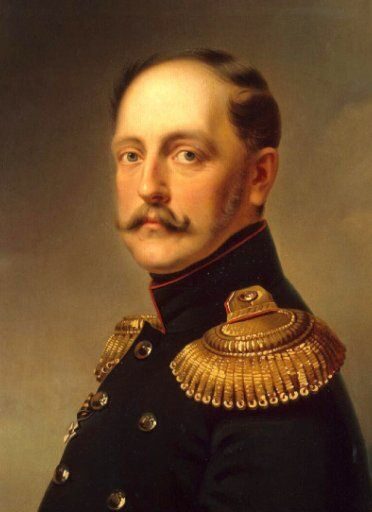
Nicholas I (1826-1855)
Nicholas I (1826-1855) – Nikoláy I Pávlovich, 6 July 1796 – 2 March 1855) reigned as Emperor of Russia, King of Poland and Grand Duke of Finland from 1825 until his death in 1855. He was the third son of Paul I and younger brother of his predecessor, Alexander I. Nicholas inherited his brother's throne despite the failed Decembrist revolt against him. He is mainly remembered in history as a reactionary whose controversial reign was marked by geographical expansion, economic growth, and massive industrialisation on the one hand, and centralisation of administrative policies and repression of dissent on the other. Nicholas had a happy marriage that produced a large family; all of their seven children survived childhood.

